Excerpts from the Essays
PART 5: Re/generating Publics: Calls to Collectivity
The final section looks at forms of isolation and division within Canadian higher education. The essays here call for the creation and/or rejuvenation of collectivities of various kinds in order to strengthen our universities and their social contributions.
Exploits in the Undercommons
by Alison Hearn, Communications and Media Scholar, University of Western Ontario.
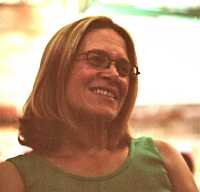
|
In the face of these cultural changes, increased managerialism and bureaucratese, the tenured professoriate aligns itself with the interests of the administration, happily engaging in the commercialization of research. They compete with each other for merit pay, allow the publication of their teaching evaluations in the name of greater accountability (it wasn't until the installation of the new right to privacy laws in Ontario that Western saw fit to remove student evaluations of professors from a public website), send their students' papers off to a private corporation-turnitin.com-to be checked for plagiarism, and install themselves in managerial positions in relation to the contingent academic labourers below them. The complete discursive and practical rejigging of the university into a managerial, corporate culture seems to suit the professoriate, many of whom already see themselves, in neo-liberal terms, as isolated, individualistic, autonomous agents of knowledge.
|
Academic Freedom, Institutional Autonomy, and the Co-operative University
by Len Findlay, English Scholar, University of Saskatchewan.
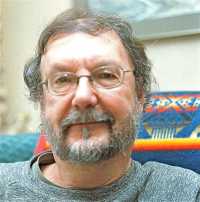
|
At a time when the shift from insatiable growth to smart sustainability is more necessary and more achievable than ever, the shift from the competitive to the co-operative university must begin in earnest, so that the next generation of Canadians, in all their diversity of aptitude and need, can be ethically empowered as well as productively employed, and create a much less mixed, more deservedly admirable and enviable picture of our country at home and across our beleaguered planet. It can be done, but only if we work together to make it happen, both inside and outside the reductive value systems of our universities.
|
The University Public and Its Enemies
by Frank Cunningham, Philosopher, University of Toronto.
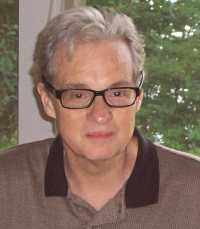
|
Students are the principal intermediaries between the university and the broader public. They, themselves, are members of this public, and they want their education to prepare them for enhanced engagement within it. To educate students in ways that respond to the problems faced by publics generally, the nature of these problems must be understood within the universities. Education of the educators on this score is the most enlightening when it derives from contact with students, coming as they do from a broad cross-section of society and expressing the aspirations and concerns of their generation. But this potentiality cannot be realized unless students are enthusiastically engaged in classroom environments conducive to eliciting and critically examining their experiences and viewpoints.
|
Reflections on Teaching and Learning
by Margaret-Ann Armour, Chemist and Science Educator, University of Alberta.
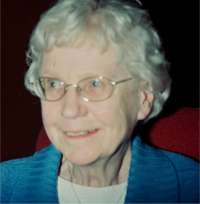
|
Innovations such as small group discussions and the use of clickers can improve the learning process even in very large classes, but they have minimal effect on building the instructor-student relationship. Therefore, they are far from implementing an ideal situation. I have a vision of the ideal teaching-learning situation for science students at research-intensive universities, which I hope the new generation of faculty will continue to strive to make more widespread. Science courses, especially at the introductory level where classes are large, have included laboratory experiences and this, rather than in lecture, is where group learning has been practised. With cost and safety concerns limiting laboratory experiences, this group learning activity may become less ubiquitous, yet the laboratory could become a setting where the students discover the satisfaction of taking greater responsibility for their own learning.
|
Offside: Playing Hockey at the University of Saskatchewan
by Glenis Joyce, Adult Educator and Liz Quinlan, Sociologist, University of Saskatchewan.
|
|
The puck dropped on April 4, 2000, when Women 2000 filed a sex discrimination complaint against the U. of S. under the Human Rights Code. Women 2000 alleged that the University of Saskatchewan discriminates against women because of their gender. In particular, the women's interuniversity hockey program, operated by Huskie Athletics, was being treated as inferior to the men's program. The target of the complaint was not specific individuals but the policies and practices governing Huskie Athletics management, which reflect a larger exclusionary and discriminatory system of norms and values. The complaint specified gender inequities in all of the following: funding allocation, public recognition, access to more competitive events, qualifications and experience of coaches, and team-based fundraising.
|
Making the University Work for Communities
by Barbara Neis,
Sociologist, Memorial University of Newfoundland.
 Photograph by Sheilagh O'Leary
Photograph by Sheilagh O'Leary
|
In my opinion, universities are a public resource to which all members of the community should be able to turn in their efforts to protect such public goods as social justice; human, environmental, and community health; and peace and democracy. The Labour Canada study was the first of many research projects I have done over my career, almost all triggered by meetings and experiences in the field. I feel that, as an academic with access to a variety of publicly funded resources, tools, and expertise that are often scarce in rural Newfoundland and Labrador, and in fishery communities around the world, I have an obligation to use that access to study issues of concern to these communities. I have encouraged my students to take the same approach, and am very committed to trying to protect those resources and our ability to access them.
|
Recovering the University as a Collective Project
by Janice Newson, Sociologist, York University.
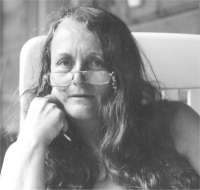
|
Contemporary universities as wholes need projects of recovery because they face their own crises of purpose. Having gone madly off in so many directions to please so many masters, they have lost touch with their purpose to educate. I am not speaking only of educating the students in their classrooms. Whatever these students' intellectual deficits, they are no greater than the intellectual deficits that pervade much of the public culture. Of what use is it to seed world-transforming technological and scientific innovations, or to invent impressive systems for tracking social, economic, and political processes on a global scale, or to strengthen social and cultural diversity, or even to eliminate various forms of inequality, if the capacities for reasoning and making moral judgments that are needed to guide these undertakings through a deeply fractured world are missing?
|
Part 1:
Against All Reason:
Wake-up Calls
Part 2:
Taking Stock of Personal and Institutional Histories:
Calls to Account
Part 3:
Between a Rock and a Hard Place:
Calls to Administrative Leadership
Part 4:
Making Space:
Calls to Open Paths
Part 5:
Re/Generating Publics:
Calls to Collectivity
|
|